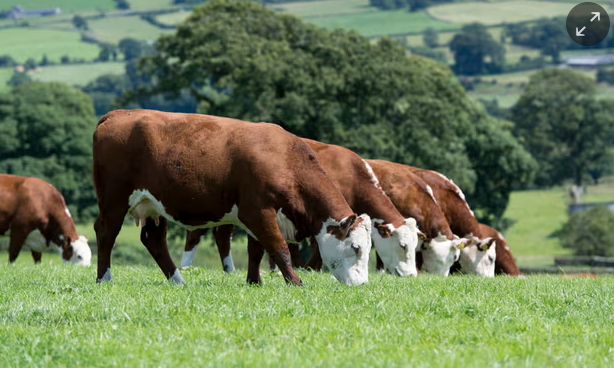May 17, 2025 | 12:38 GMT +7
May 17, 2025 | 12:38 GMT +7
Hotline: 0913.378.918
May 17, 2025 | 12:38 GMT +7
Hotline: 0913.378.918

Agricultural greenhouse gases make up about a quarter of total anthropogenic emissions and mostly derive from livestock. Photograph: Farm Images.
More than 20 scientific experts have written to the UN’s food agency expressing shock at its failure to revise or withdraw a livestock emissions report that two of its cited academics have said contained “multiple and egregious errors”.
The alleged inaccuracies are understood to have downplayed the potential of dietary change to reduce agricultural greenhouse gases, which make up about a quarter of total anthropogenic emissions and mostly derive from livestock.
In the joint letter, which the Guardian has seen, the scientists say they are dismayed that the UN Food and Agriculture Organization (FAO) has failed to remedy “serious distortions” originally identified by the academics Paul Behrens and Matthew Hayek, which the Guardian reported on earlier this year.
Behrens and Hayek say a separate complaint has received short shrift. They say a “technical dialogue” promised by the FAO never materialised, beyond an invitation to a muted webinar where they could type questions into a Q&A box.
“There has been no serious response,” Behrens said. “They partially addressed one of the points in the webinar in an unscientific way. But they gave no response at all to the vast majority of our complaints. Our concerns have barely been acknowledged, let alone seriously engaged with. It’s been like hitting a brick wall. The FAO has made grievous errors that need urgent correction to maintain its scientific credibility.”
One of the signatories to the letter, Jennifer Jacquet, a professor of environmental science and policy at the University of Miami, compared the FAO’s complaints process unfavourably with those of a science journal, “where you could at least expect a correction to the article”.
The FAO’s “pathways toward lower emissions” study was originally billed as “an updated comprehensive overview” of global livestock emissions and was launched at last December’s Cop28 climate summit.
Behrens and Hayek said it inappropriately used their work on now outdated nationally recommended diets (NRDs), double-counted meat emissions, mixed different baseline years in analyses, and omitted the opportunity cost of carbon sequestration on non-farmed land.
Correspondingly, the emissions savings from farming less livestock were underestimated by a factor of between six and 40, Hayek estimated.
In an initial response to complaints, seen by the Guardian, the FAO’s chief scientist, Beth Crawford, described the report’s NRD-based emissions forecast for 2050 as “a rough estimate”. She said: “This methodological choice was made because there is no global database on dietary preferences and no policy instrument that supports the adoption of alternative diets based on balanced environmental, economic and social criteria.”
She did not touch on other points raised by the pair, such as alleged double counting and mixed baseline years, which Hayek said “are related to their misuse of our scientific data”.
Crawford’s response said the FAO had received a “rigorous and thorough review” supporting its conclusions from a group of scientists led by three named academics.
The joint letter, which was also signed by 78 environmental groups, said: “It is not acceptable for the FAO, a respected UN institution, to gloss over these serious errors as a ‘rough estimate’ when the data and policy recommendations it provides are so internationally influential. A higher standard of scientific rigour is required.”
Jacquet said: “It seems clear to me that some of the choices made by the FAO in their methodology were just there to uphold the status quo of increasing meat production and consumption.”
The FAO was contacted for a response.
(The Guardian)

(VAN) Fourth most important food crop in peril as Latin America and Caribbean suffer from slow-onset climate disaster.

(VAN) Shifting market dynamics and the noise around new legislation has propelled Trouw Nutrition’s research around early life nutrition in poultry. Today, it continues to be a key area of research.

(VAN) India is concerned about its food security and the livelihoods of its farmers if more US food imports are allowed.

(VAN) FAO's Director-General emphasises the need to work together to transform agrifood systems.

(VAN) Europe is facing its worst outbreak of foot-and-mouth since the start of the century.

(VAN) The central authorities, in early April, released a 10-year plan for rural vitalization.

(VAN) Viterra marked a significant milestone in its carbon measurement program in Argentina, called Ígaris, reaching 1 million soybean hectares measured.